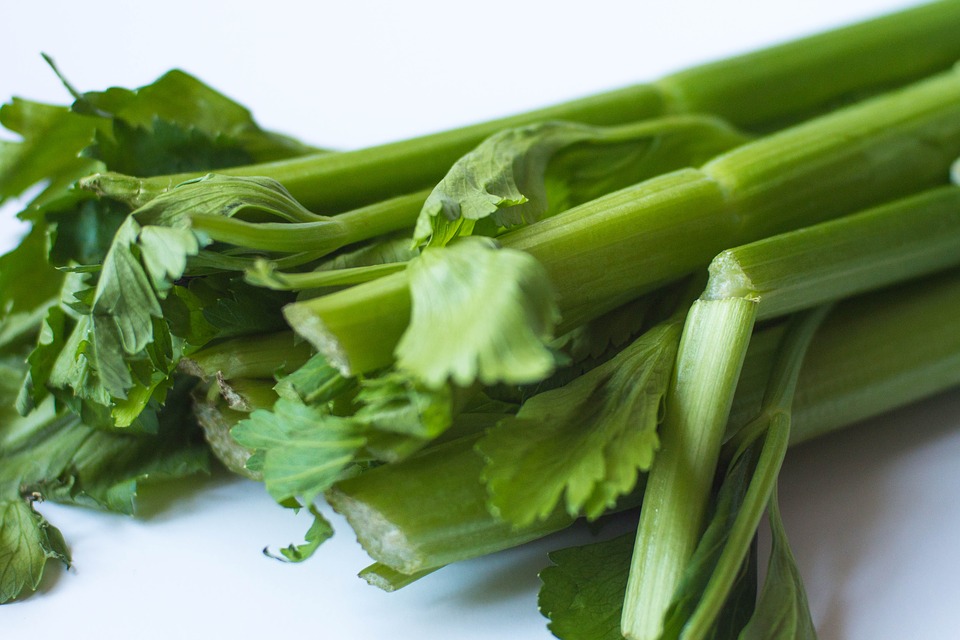Study finds that celery compounds may halt breast cancer
03/13/2019 / By Amy Goodrich

While berries get all the antioxidant fame and kale often tops the superfood lists, celery is usually overlooked. Omitted from many kitchen tables as the crunchy weight loss vegetable, celery is so much more than just a low-calorie diet food. Recently, celery got researchers at the University of Missouri all excited when they found that it could be the next non-toxic treatment to stop invasive breast cancer in its tracks.
Every day more than 100 American women die from breast cancer, reported Green Med Info. It is the most commonly diagnosed cancer and the second-leading cause of cancer-related deaths in women. But there is hope to beat this disease, and it’s coming from a flavonoid molecule named luteolin found in celery.
What you need to know about hormone replacement therapy and breast cancer
Women who have gone through their menopause often resort to synthetic hormone replacement therapy (HRT) to replace the hormones the body no longer makes. One of these hormones is progestin, a synthetic form of the natural hormone progesterone, given to women to prevent endometrial cancer.
Though it may prevent one type of cancer, the Women’s Health Initiative study found that synthetic HRT significantly increased a woman’s risk of breast cancer, heart disease, stroke, and blood clots in veins and lungs. Thanks to the study’s findings, the use of synthetic HRT has dropped and researchers already noted a 7 percent decrease in breast cancer rates since the use of progestin in HRTs fell out of favor.
Previous studies found that medroxyprogesterone acetate (MPA), a common form of progestin, promoted the development of blood vessels needed to fuel tumor growth. Furthermore, results also indicated that MPA increased the production of vascular endothelial growth factor (VEGF) in human breast cancer cells, supporting cell growth and metastasis.

How natural compounds in celery can help
According to the Missouri researchers, luteolin reduced angiogenesis or the formation of blood vessels that feed cancer cells, while increasing the rate of apoptosis or programmed cell death. Next to its cancer-fighting abilities, luteolin also displayed a protective effect.
One of the authors noted that for many older women it is normal to have benign lesions in their breast tissue. While these lesions are harmless, progestin, among other factors, promote the formation of blood vessels to feed the lesions, which can trigger them to become cancerous tumors. The study found evidence that luteolin has the potential to disrupt blood vessel formation, thereby preventing the development of cancerous tumors.
Additionally, the researchers found that luteolin can prevent breast cancer cells to turn into cancer stem cells. These stem cells enable cancer to take on a deadly form by speeding up tumor growth and promoting metastasis to lymph nodes and other parts of the body.
In a follow-up study, the Missouri researchers also found that luteolin could reduce the occurrence of metastasis caused by triple-negative breast cancer in women. Triple-negative breast cancers comprise about 15 to 20 percent of all breast tumors. They are a particularly aggressive and deadly type of breast cancer which often metastasizes to distant tissues and organs.
Researcher Salman Hyder of the University of Missouri explained that triple-negative breast cancers are cancer cells that lack three cell receptors targeted by current chemotherapy treatments. Therefore, doctors must use extremely aggressive and highly toxic treatment strategies to fight the disease.
Currently, the researchers are looking at whether non-toxic luteolin injections might be useful to treat breast cancer. Until further research has been done to confirm the results, Dr. Hyder and his team encourage women to eat a healthy diet packed with fresh organic fruits and vegetables that contain luteolin.
Celery is the richest source of this potent antioxidant, but it can also be found in fresh thyme, radicchio, parsley, lemons, olive oil, broccoli, spinach, kale, Brussels sprouts, and beets.
Read about alternative cancer treatments at CancerSolutions.news.
Sources include:
Submit a correction >>
Tagged Under:
alternative treatment, antioxidant, breast cancer, Celery, luteolin, natural cures, natural remedies, tumor growth, women's health
This article may contain statements that reflect the opinion of the author




















